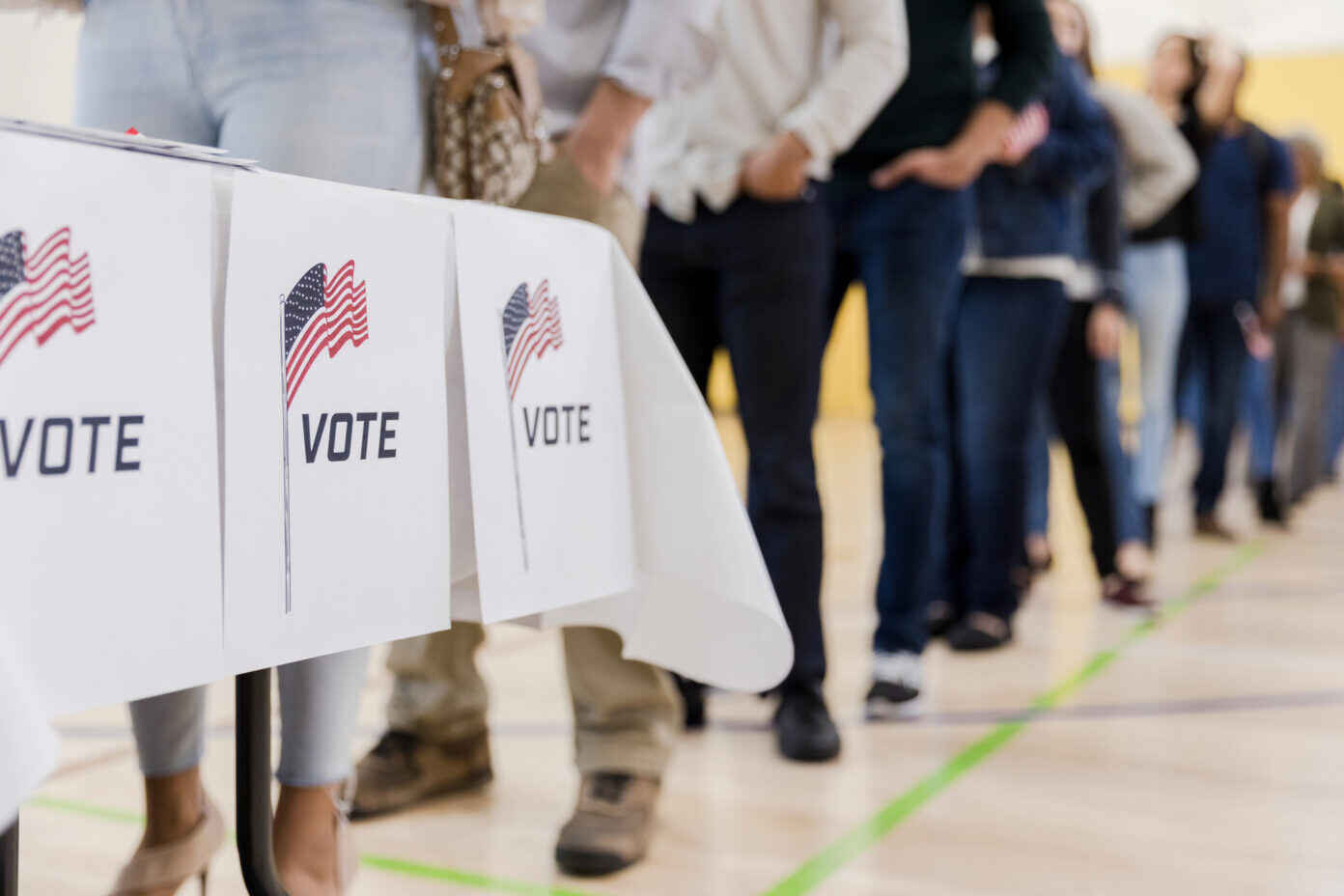Safe Voting During the COVID-19 Pandemic: Public Health Orders and Legal Challenges in Two Jurisdictions
October 31, 2020
Overview
Co-authors: Cliff Rees and Emily Carey
The COVID-19 pandemic has created the challenge for states to provide safe conditions for individuals to vote in the upcoming Presidential election. In two southwestern states, public health executive orders (New Mexico) and legal challenges (Arizona) have been seen ahead of the upcoming election related to voting conditions and voter registrations.

The New Mexico Experience: Mask Wearing and Voting
New Mexico’s Public Health Emergency Response Act (Sections 12-10A-1, et seq., NMSA 1978) governs the issuance of Public Health Orders (PHO’s) when a New Mexico Governor declares a public health emergency (see Section 12-10A-5.B. NMSA 1978. Invoked by New Mexico Governor Michelle Lujan Grisham for the first time on March 11, 2020, a series of PHO’s have since addressed all aspects of New Mexico’s pandemic response, including two PHO’s issued by the New Mexico Department of Health concerning New Mexico’s June 2, 2020 Primary Election and November 3, 2020 General Election.
The New Mexico Department of Health issued an initial PHO on April 30, 2020, governing the conduct of the June 2, 2020 Primary Election in the state. This was replaced by a subsequent PHO dated September 3, 2020 governing the 2020 New Mexico General Election (see list of Executive Orders). Social distancing protocols, limited poll location occupancy, hand sanitizing and equipment cleaning, including writing implements, are required. Conspicuously absent from the September 3, 2020 PHO is any reference to the requirement of the use of masks in a polling place. This requirement is apparently covered by a separate, more general PHO, issued by the New Mexico Department of Health on September 18, 2020 which requires “all individuals” to wear a “mask or multilayer cloth face covering in public settings except when eating or drinking” or when “a healthcare provider instructs otherwise.”
The assumption inherent in the September 18, 2020 PHO is that a polling place is a “public setting.” This assumption is largely confirmed by the 2020 New Mexico General Election Voter Information Advisory (“Advisory”) issued jointly by New Mexico’s Secretary of State and Office of the Attorney General on October 14, 2020 which states that “(m)asks are required by the current Public Health Order” ( pages 5-6 of Advisory). Voters who refuse to wear a mask will be allowed to vote but the Presiding Judge and County Election Officials “may seek a compromise or offer an alternate accommodation to help maintain the comfort and safety of other voters in the vicinity.”
One accommodation not specified by the Advisory that could be considered would be to install a privacy booth separate from the other privacy booths where maskless voters could be asked to complete their paper ballots. Maskless voters would then wait for masked voters to complete their voting process at the machines used in each polling place before the maskless voters could tabulate their paper ballot under the supervision of a poll worker.
Legal Challenges in Arizona: Voter Registration
In October, two non-profit organizations sued seeking to extend the Arizona registration deadline because of the COVID-19’s impact on voter registration. Even though Arizonans can register online, a large portion of the population lacks access to the internet. Plaintiffs argued that they could not connect with the same number of eligible voters during the pandemic months because of coronavirus-related restrictions.
A federal District Court initially allowed an extension of Arizona’s voter registration deadline until October 23 (from October 5) holding that the integrity of the election would be undermined if a portion of the population was prevented from registering. The Ninth Circuit reversed the ruling, requiring voting registration to end on October 15. The Court disagreed that COVID-19’s public health restrictions warranted more time for voters to register, holding that the statutory deadline did not impose a “severe burden” on Plaintiffs’ rights, as compared to the state’s heavy administrative burdens. Prior to the Ninth Circuit’s decision, 7,700 voters were registered to vote during the extended period from October 5 to October 12.
The events in these two states highlight the use of legal tools, either through public health orders or litigation, to try to address the challenges of balancing the need for individuals to fulfill their right to vote with public health precautions during the novel coronavirus pandemic. With the election just days away, Arizona and New Mexico’s experiences are not unique, but rather are illustrative of challenges being faced across the country.
This post was prepared by Clifford M. Rees, JD, Former Practice Director, Western Region, Network for Public Health Law and Retired New Mexico Department of Health Attorney, Santa Fe, New Mexico; Emily Carey, Legal Researcher, Network for Public Health Law – Western Region (JD Candidate 2021), and Leila Barraza, J.D., M.P.H., Senior Consultant, Network for Public Health Law – Western Region, and Associate Professor, Mel and Enid Zuckerman College of Public Health, University of Arizona.
The Network for Public Health Law provides information and technical assistance on issues related to public health. The legal information and assistance provided in this document do not constitute legal advice or legal representation. For legal advice, readers should consult a lawyer in their state.
Support for the Network is provided by the Robert Wood Johnson Foundation (RWJF). The views expressed in this post do not necessarily represent the views of, and should not be attributed to, RWJF.
